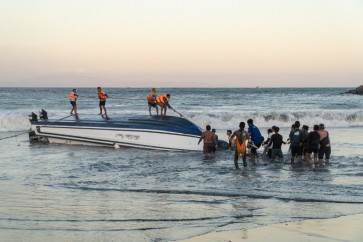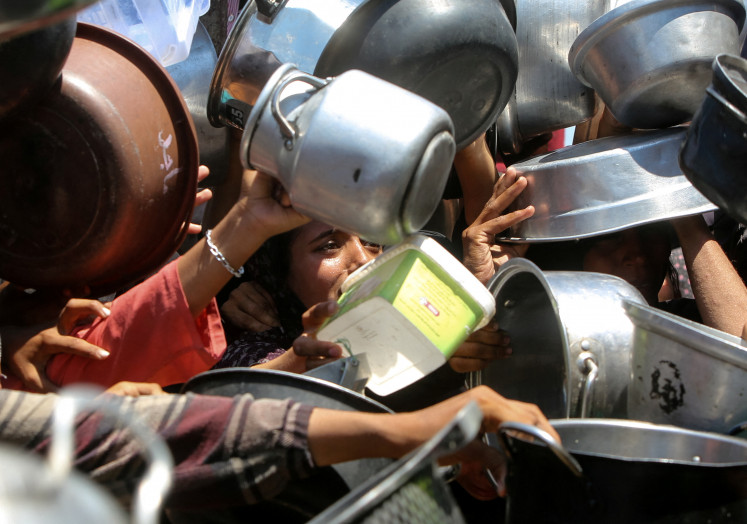Popular Reads
Top Results
Can't find what you're looking for?
View all search resultsPopular Reads
Top Results
Can't find what you're looking for?
View all search resultsHerbal sex remedies a hazardous cocktail, experts warn
“Jamu Kuku Bima Ginseng, please,” said a man in a lea-ther jacket to a vendor at a jamu (traditional herbal medicine) kiosk in Slipi, West Jakarta, on a cold Tuesday evening
Change text size
Gift Premium Articles
to Anyone
“Jamu Kuku Bima Ginseng, please,” said a man in a lea-ther jacket to a vendor at a jamu (traditional herbal medicine) kiosk in Slipi, West Jakarta, on a cold Tuesday evening.
The vendor prepared the order immediately. Within five minutes, a glass of warm Kuku Bima Ginseng jamu was ready. The herbal drink was served with a shot of sweet lime juice to wash down the bitter aftertaste of the jamu.
"At least 15 people ask for this jamu every night," the vendor told The Jakarta Post.
"They prefer this kind of jamu to other jamu for flu or rheumatic pains."
Customers, especially male customers, believed Kuku Bima Ginseng could restore their health and stamina, the vendor said.
Apparently, after consuming this kind of herbal drink their health improves.
Heru, a jamu customer who lives in Ciputat, Jakarta, says he has been taking jamu since he was a teenager.
"Honestly, after drinking jamu regularly, I seldom need to visit a doctor," he said.
"Jamu made by prominent companies is safer. I would not risk my health with jamu products from little-known producers, even if it is cheaper," Heru added.
"Indonesian jamu is safer than other herbal medicines, especially those from overseas," Fikar, another jamu user said.
The Food and Drug Monitoring Agency (BPOM) recently released a list of 22 performance-enhancing drugs and various kinds of supplements -- including jamu -- that were banned because of their alleged side effects.
A series of tests found some products contained chemical substances that could be categorized as prescription drugs, not herbal medicine or food supplements.
Among the banned products were six imported items (five herbal medicine products and one food supplement) and four local products with falsified registration numbers.
The imported items, like Blue Moon and Tripoten, come from China.
According to BPOM, the banned products contain sildenafil citrate (commonly known as Viagra), which can cause headaches, nausea and even death, and tadalafil (commonly known as Cialis), which can cause strokes.
Soedaryatmo of the Indonesian Consumers' Foundation (YLKI) said the monitoring agency needed to get tough with the illegal sale of these products because many of them were readily available.
Performance-enhancing drugs used by men to boost their energy and sexual stamina are highly popular in Indonesia and men rarely report negative side-effects.
"They are probably too embarrassed to report problems and keep it secret," Soedaryatmo said.
Soedaryatmo was certain the producers of performance-enhancing drugs and supplements would continue to produce these medicines because customers did not complain.
"The state monitoring agency needs to take these products off the market rather than just forbidding customers from consuming them," he said.
One non-government organization, the Food and Drug Protection Foundation (LPHOM), has found several kinds of banned pharmaceutical products still being sold in markets and chemists.
The foundation also found many jamu kiosks selling banned drugs to customers secretly.
"Because these products are banned, sellers screen their customers before selling to them," Ulung Purnama, head of the NGO's justice division told the Post.
In 2005, the monitoring agency categorized 15 such performance-enhancing drugs and supplements as dangerous, Ulung said. (naf)










